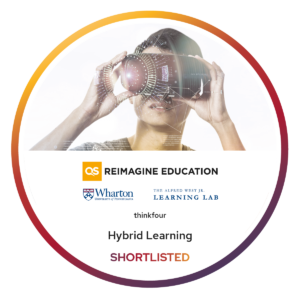

Watch this for a reminder in how to approach exam questions for Higher Biology (and why reading makes life happen)
Would you believe me if I told you that the incredible diversity of life we see on our planet – the colour, the variation, the diversity, the beauty – all boils down to reading skills? Well, it's true.
DNA, that wonderful molecule that nearly all cells have inside them, which opens up all the opportunities and possibilities of life, has a code that is read by enzymes, and then used in transcription and translation to produce all the proteins that we require for survival on our planet.
If the code isn’t read in the right way, then the wrong, or no, protein will be made, and chaos will ensue, life would dwindle.
But there is no chaos because the codes are, for the most part, read accurately in nature.
But what about you? Do you take in information carefully and then do something accurate with it?
Simply knowing a lot of information about Biology isn’t going to get you through a Biology Higher exam. It’s how we interpret that info, that’s where the magic happens.
So get your reading glasses on and let's explore.
This is thinkfour.
Biology assessment questions require you to do more than simply have knowledge. They require you to understand a scientific context, digest and synthesize biological data, and then, having achieved all this, they then require you to provide responses to demonstrate your understanding.
The stem of the question – the bit that provides the context, the dataset, the graph – is the key. The answers are here, if you are prepared to look carefully. All you need to do is to take the time required to unpack it.
But, the strange things is, most people don’t. You would be amazed to know just how many questions are answered incorrectly in assessments, just because the time wasn’t taken to read all the information given. Believe me, it is a LOT, and that equates to a lot of dropped marks in an exam.
You probably think “I already do this”, so why am I taking my time to tell you this? So that YOU will take your time in assessments and read all the information before answering and get it right.
Don’t just look straight at question 1 (a) (i) and then look at the stem of the question. Slow yourself down. Read the stem first, take in the information, interpret the graphs, think about what the information means, and try to understand what the information is about…THEN look at question 1 (a) (i).
Always refer back to the stem before answering subsequent questions and if any new information is given later in the question, read it, take it in and think, then you’ll stand a better chance of getting it right.
Reading stems of questions is particularly important when it comes to long data and experimental questions in SQA exams.
Use a highlighter to remind yourself of the crucial information. This might be the labels on the axes of graphs, especially units. KNOW what a graph is showing you before you answer, and you’ll get it right.
As you read all the important information, graphs, tables and data in the stem of these sorts of questions, highlight the significant bits that will possibly be vital when it comes to answering questions about it.
A good example of this, and a common error in exams, is making proper use of the aim of an experiment. If the aim is, for example, “to find out about the effect of temperature on the rate of a reaction”, any conclusions you draw out in your answer MUST mirror the aim.
Don’t, for example, wander off in your conclusions into aspects that are not important, such as the volume of oxygen produced or other things you measured. Use the information provided to focus your answer back to the original aim… and you’ll be on the right track with the right information.
So when it comes to answering questions, be smart like the enzymes that read the code on the DNA correctly. Read stems fully and think before answering.
It always amazes me what we can learn from studying nature. With a bit of accurate reading and decoding, we might not be able to create life but we can definitely take some inspiration into our Higher Biology exam.
This was Thinkfour. Thanks for watching.



| Cookie | Duration | Description |
|---|---|---|
| cookielawinfo-checbox-analytics | 11 months | This cookie is set by GDPR Cookie Consent plugin. The cookie is used to store the user consent for the cookies in the category "Analytics". |
| cookielawinfo-checbox-functional | 11 months | The cookie is set by GDPR cookie consent to record the user consent for the cookies in the category "Functional". |
| cookielawinfo-checbox-others | 11 months | This cookie is set by GDPR Cookie Consent plugin. The cookie is used to store the user consent for the cookies in the category "Other. |
| cookielawinfo-checkbox-necessary | 11 months | This cookie is set by GDPR Cookie Consent plugin. The cookies is used to store the user consent for the cookies in the category "Necessary". |
| cookielawinfo-checkbox-performance | 11 months | This cookie is set by GDPR Cookie Consent plugin. The cookie is used to store the user consent for the cookies in the category "Performance". |
| viewed_cookie_policy | 11 months | The cookie is set by the GDPR Cookie Consent plugin and is used to store whether or not user has consented to the use of cookies. It does not store any personal data. |
